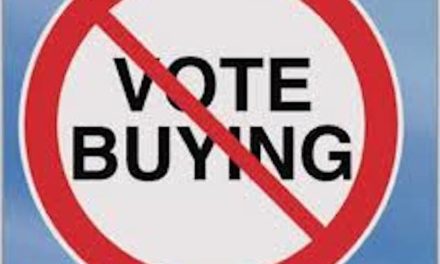“Woe to the foolish prophets who follow their own imaginations” (Ezekiel 13:3).
Politics and spirituality are not worlds apart neither are they different arenas that should never be mixed. Corinne McLaughlin of the Centre for Visionary Leadership explained that politics and spirituality has potential to produce deadly or a renewing results. A good example of such deadly result is in Nigeria shaped by exclusive politics and spirituality. A renewing example of politics and spirituality produces a distinctive development and love helping the people develop inner, spiritual strength and resources to be enlightened followers and creative and relational leaders. Before we continue, it is helpful to know a big difference between spirituality and religion. Spirituality is not dependent upon religion though religion can help a person to be spiritual. Religion as an organised institution and community of believers is guided by specific dogmas and practices.
Nigeria is failing today because our politics, religion, and spirituality are not leading us to fear God neither yielding us common goods for common services and welfare. Any nation that can not translate its politics, religion, and spirituality for the benefit of its citizen under the fear of God is not only a failed nation but a Babylon, a place of evil mentioned in the Book of Revelation. It is a known fact that the relationship in Nigeria between Politics, Spirituality, and Religion is ‘perceived as a kind of symbiotic and mutual extortion.’
The question is, are Nigerians today yearning for a spiritually based politics guided by ideology and moral values, ‘a politics that doesn’t appeal only to self-interest and pit one group against another’? Are Nigerians today ready and seeking ‘a type of political discourse that speaks to their deepest values as human beings, that provides a greater sense of community and a transcendent purpose as a nation, that offers us a higher vision of public life and service to the common good–rather than appealing only to greed and lust for power’?
Sadly, many are worried today, despite our religiosity and spirituality, Nigerian politics is carnally and materially influenced. Nigerian politics today only appeal to self-interest especially of our elites and thereby pit the poor masses against themselves and promoting a systemic poverty, hatred and violence. Nigerian politics today after 20 years of our expensive democracy is about wealth acquisition that speaks to our uncontrollable greed and carnality hence, no tangible development despite spending almost $600 million on election process.
The challenge to our politics is adversely affecting, corrupting and diminishing our spirituality while our spirituality is making mess of our politics in Nigeria. Spirituality that should help Nigerians leave ego, ethnicity and power trips at the door and truly serve the good of others in contrast is promoting ego, ethnicity and power trips all over Nigeria. A looter is not a looter so far he or she belong to a particular ethnicity, profession or political party. Politics and spirituality that should provide practical arena for applying spiritual principles such as compassion, transparency, love, and accountability is now a den of thieves robbing the masses of their common wealth without adequate social infrastructures and welfare package for the poor. We have elites and especially politicians and church leaders whose words are more pious than their deeds. The reflection is that when we bring spiritual ideology and values such as holiness, altruism, and courage into politics, they ‘could offset the immense power of moneyed interests to influence policy, and offset the cynicism and apathy of much of the public,’ especially in Nigeria.
Politics and spirituality points to people as God’s image on earth, hence there are many ways in which the church in Nigeria could help to promote spiritual values with impact on Nigerian politics and spirituality. How do we measure our spirituality? It is based on integrity, that is, how we embodies the spiritual principles we promote or confess as Christians, Muslims, or Traditionalists. Spirituality in Nigerian politics invites us to engage in politics to help and serve others, rather than just acquiring wealth, property and protecting self-interests at the expense of the vulnerable masses. Nigerian politics today is based on love and self-interest shaped by selfish concern for others. When our private motive is increasingly our own power or fame, it reduces our spiritual values, hence, the public motive to serve or help others becomes secondary or none at all. The question is what happen to some of our road contracts that has been awarded numbers of time without any construction taking place? Where is the money? What is values behind the Dasukigate and Dizeanigate looting of our common wealth? Where is the spirituality or religion of these looters?
Nigerian politics and democracy principles does not acknowledges future potential, hence fails to empower their development and orientation. Nigeria politics and spirituality of divide and rule does not give the youth the maximum freedom and environment to grow and develop. Nigeria politics and spirituality values exclusiveness, lose-win culture, control, violence, and greed.
Nigerian politics and spirituality does not provide equal opportunity, economic rights, education rights, political rights because decision-making power are bestowed on few so that individuals may depend on the elites rather than develop the masses full potential. The emphasis of Nigerian politics and spirituality is on exclusiveness, where elites are honoured and celebrated, hence lack of self-worth or self confidence among majority of our youths.
I believe, God is asking the church in Nigeria to repent in honesty and integrity, ‘walking the talk’ as the salt and light in Nigeria. We cannot be partisan and be prophetic but we can be prophetic without becoming partisan. God is still at work to redeem Nigerian politics and spirituality from banality.
God bless Nigeria.











Recent Comments